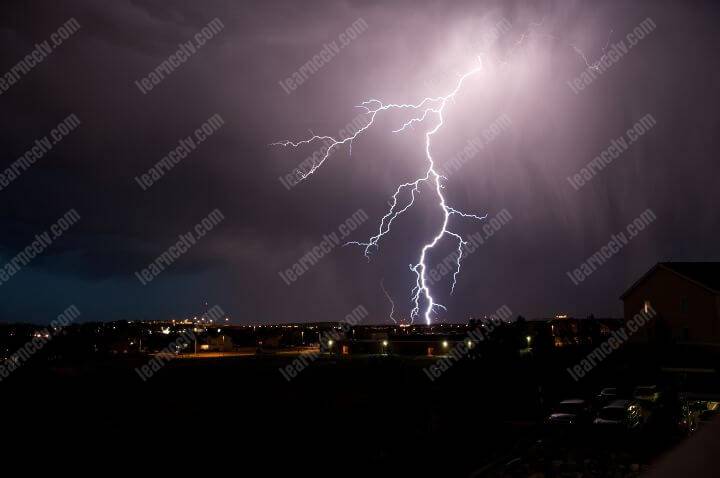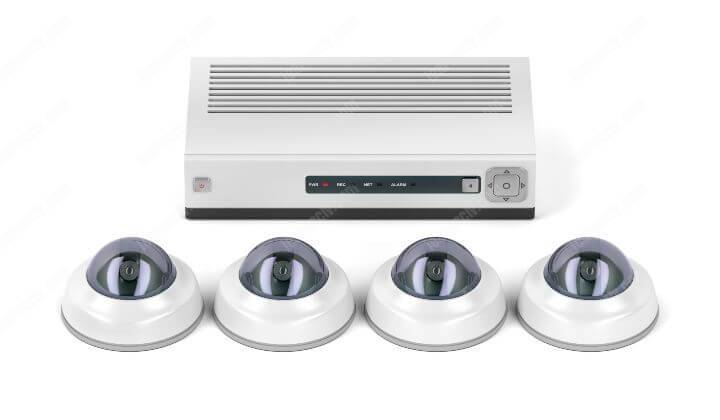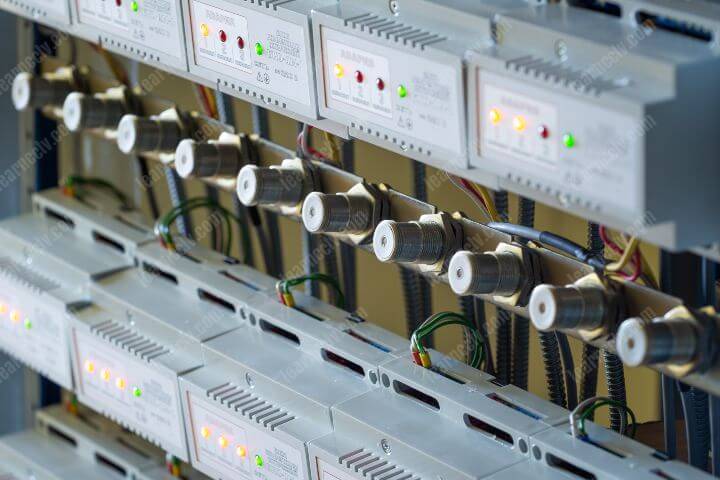As we all know, the weather is pretty unpredictable. However, it is always better to be safe than sorry. Let's go over methods to protect CCTV cameras from lightning.
Protect CCTV cameras from lightning

First off, lightening is incredibly dangerous, yet frequent in many countries of the world.
However, if the chances of a person being struck are 1 in 3,000 in a lifetime, imagine a small camera.
Though taking precautions when you live in a hot and humid area is always for the best. Especially when utilizing cameras outdoor.
Outdoor cameras are more reliable and more durable as they have to combat everyday weather.
However, lightning can critically damage your camera. Therefore you should take these precautions.
Mounting
In order to protect CCTV cameras from lightning, you will want to use certain materials to protect your camera.
Contrary to popular belief, when lightning strikes a car, it will not affect the people inside due to the metal and not the rubber tires.
This is because metal conducts electricity, but it does not attract it.
We can go about this as a car and a motorcycle. In a car, metal surrounds the person inside, meaning being inside and not touching metal will keep you safe.
Such as a metal box around your camera.
However, if a motorcycle was struck, it will severely damage the person on it. The same will happen if your camera is not enclosed and protected.
To protect CCTV cameras from lightning, the mounting plays a significant role.
The placement of your camera is also incredibly important.
It would be best if you did not place it high, especially close to lightning rods that are meant to attract and safely disperse the energy to the ground.
Additionally, mounting cameras in trees to bird watch with CCTV cameras, for example, can cause a whole lot of damage. Trees are tall and therefore easy targets for lightning.
However, they also tend to catch on fire and break, which is not going to end up well for a camera that is attached to the tree.
DVR and NVR

When protecting your DVR or NVR from being affected, you first have to protect CCTV cameras from lightning. Therefore keeping the number of repairs needed to a minimum.
You should also firmly ground your CCTV camera. Protect CCTV cameras from lightning by making sure the power can be redirected in case your camera is struck.
This will further help protect other vital aspects such as the cables and even your DVR or NVR inside your home.
However, lightning is irregular, meaning you should take precautions and be ready for the worst to come.
But it is possible to avoid lighting from traveling to your DVR or NVR. Having power supply panels can power all of your wired cameras and avoid individual power supplies.
Utilizing a surge protector can protect CCTV cameras from lightning by diverting voltage above the regular 120v.
Therefore, redirecting the energy away from your DVR or NVR and into the ground.
Additionally, they are affordable and easy to find and install, which is excellent if you are trying to salvage your DVR or NVR and all its footage.
Lastly, you can attempt to have a power supply that is continuously hooked to your DVR or NVR.
Meaning, if the power goes out, your DVR will continue to record with the power that it is receiving from the power supply.
This can also give you time to properly turn off your DVR or NVR and keep from damaging it or losing part of your footage.
Wired vs. Wireless
There are pros and cons to having a wired camera or a wireless camera. Mainly to protect CCTV cameras from lightning.
Wired cameras

On the one hand, these cameras are not removable and are usually for the long-term. They store the footage on a DVR or NVR, which can be affected if struck by lightning.
However, they are usually very durable and can be placed into protective boxes to ensure their safety.
Wired cameras run on cables, which can not only affect the camera but others inside your home. You should also keep in mind that wired cameras can be more expensive.
Wireless cameras
On the other hand, wireless cameras store footage directly into the cloud, eliminating the need for a DVR or NVR.
They are also usually smaller than a wired camera, making them a harder target.
Not only are they cheaper, but if damaged, you won't have to replace cables or a DVR. Making wireless cameras more affordable than wired.
Reliability

Last but not least, you should invest in quality products to protect CCTV cameras from lightning. As well as getting them from a trusted brand that offers a warranty.
It is crucial to have good products that are durable and even weatherproof. At the end of the day, you want to protect your products from being damaged.
Low-quality cameras will be harder to protect, not only from lightning but from weather altogether.
Meaning it is more beneficial for you to spend more money upfront for a high-quality and lasting camera.
The bottom line
Overall, there are ways to protect CCTV cameras from lightning. However, it is not something to dwell on as the chances of lighting hitting your camera are incredibly low.
Therefore, you should invest your money on other protections, such as protecting your CCTV camera from theft.
Or even invest in the extended warranty that CCTV camera brands offer.
Let us know what you think is the most important thing to protect your camera from!